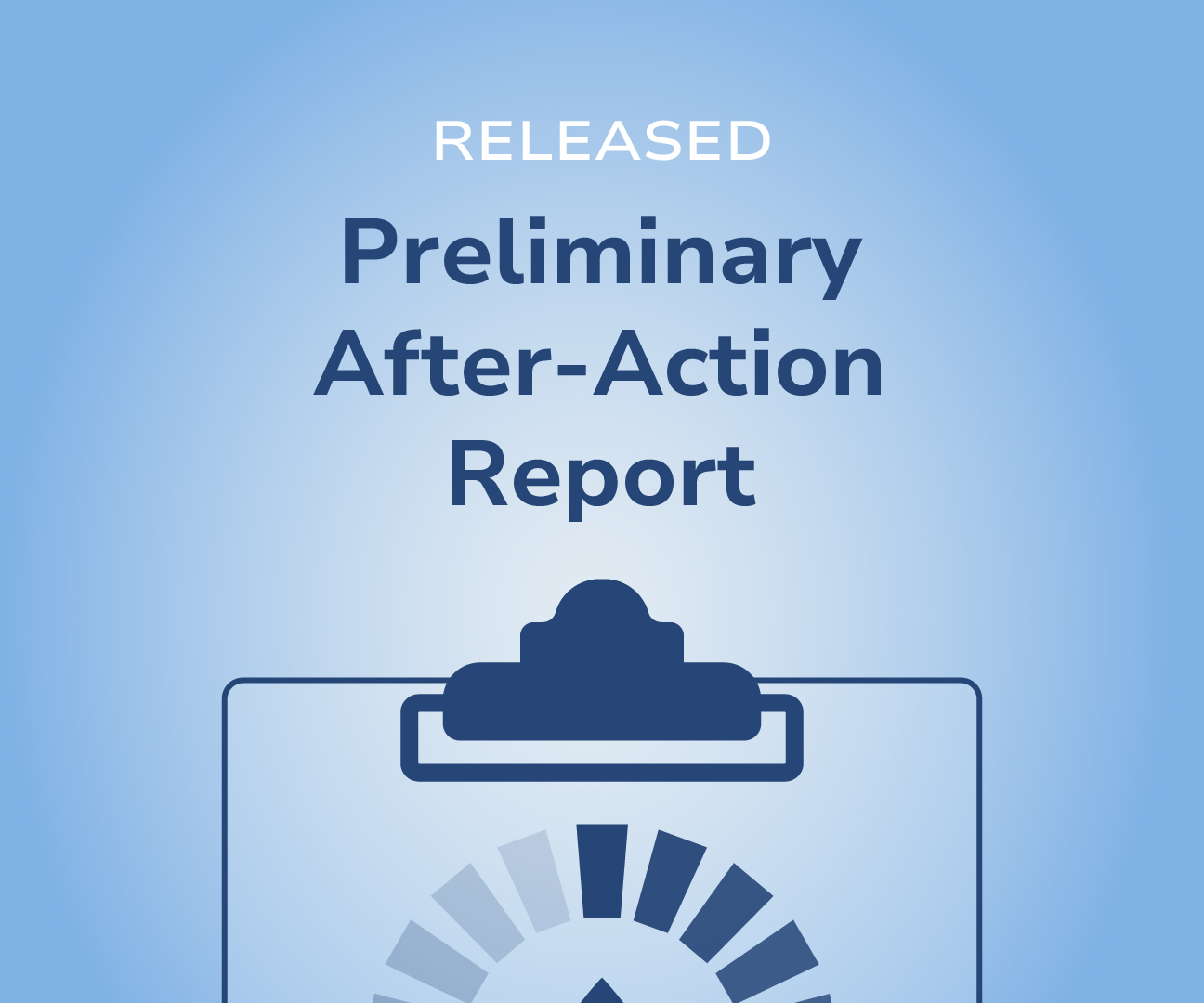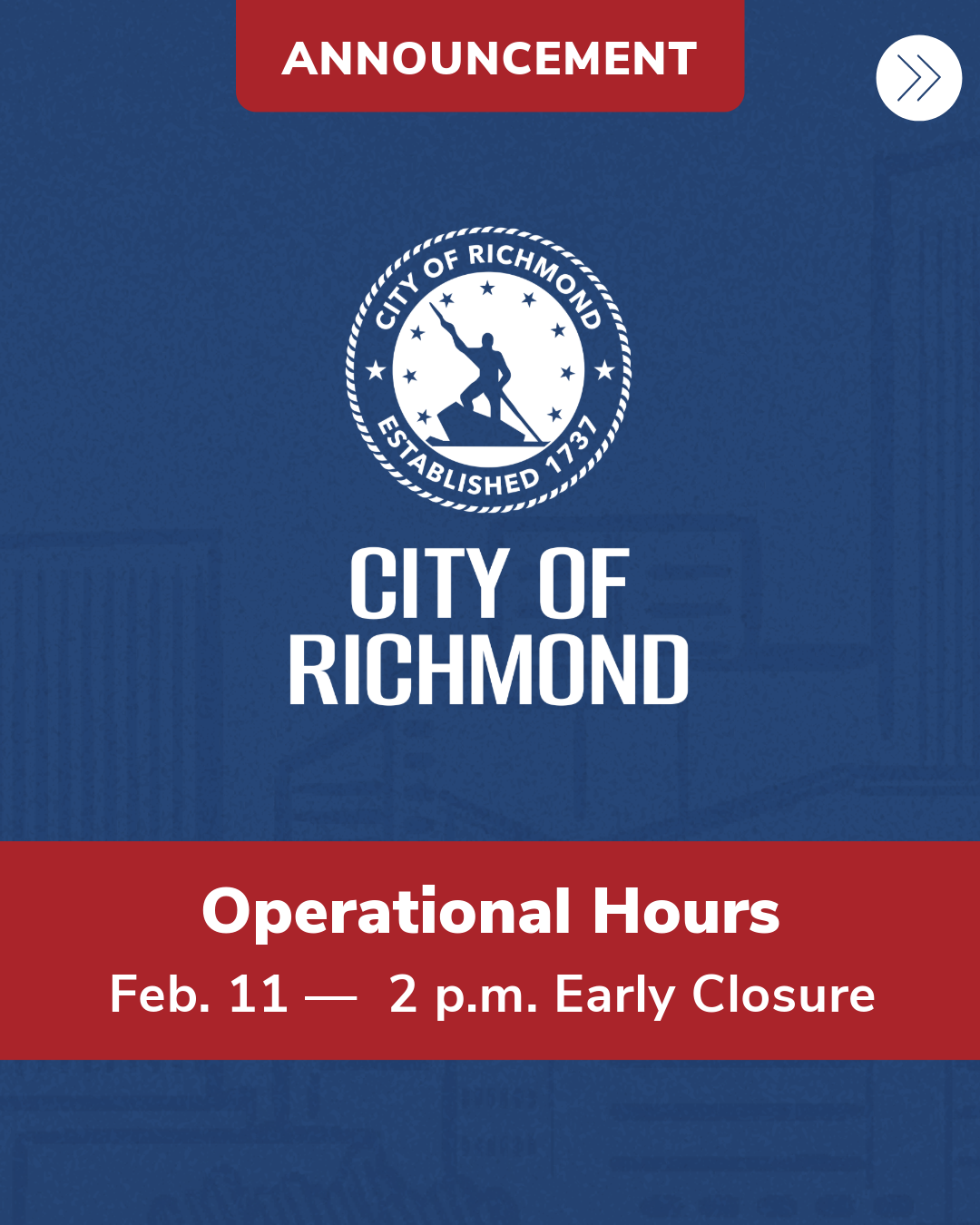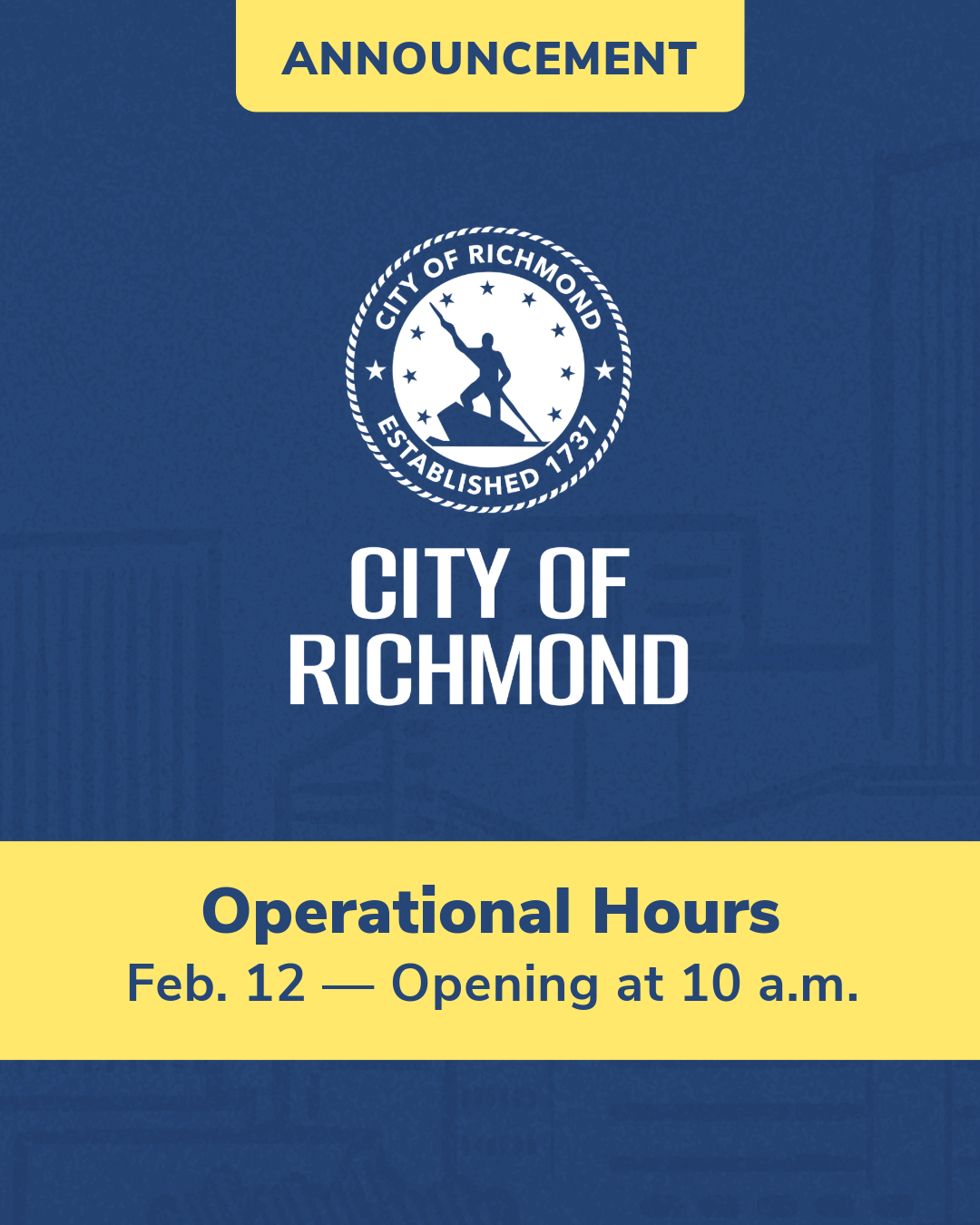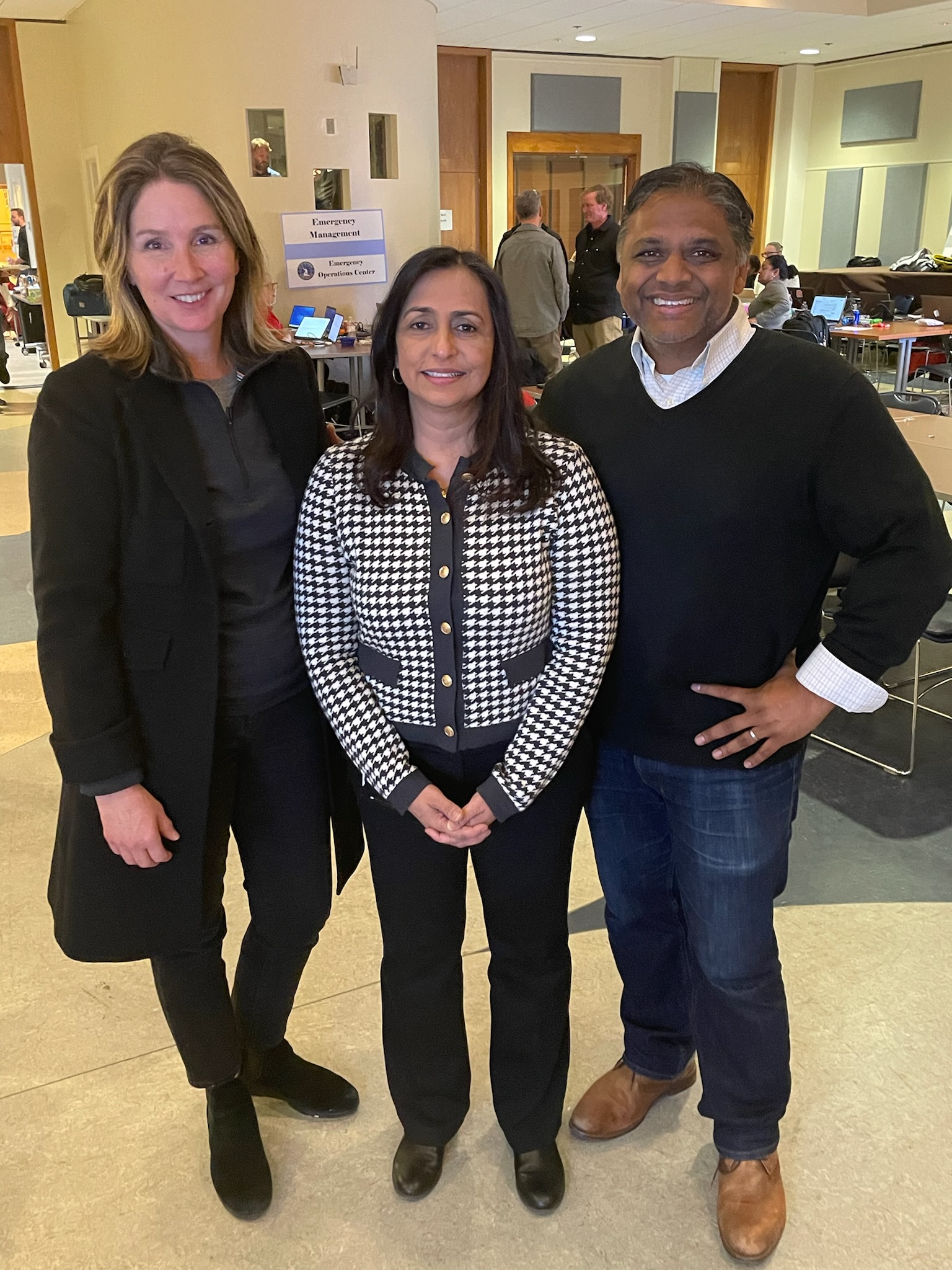City of Richmond Department of Public Utilities to activate Dock Street floodwall as cautionary measure
Posted Feb. 17, 2025
Some City parks closed, and residents encouraged to sign up for Richmond Ready Alerts to stay informed.
The City of Richmond Department of Public Utilities will activate the Dock Street floodwall as a cautionary measure due to the recent heavy rainfall. Dock Street will be closed between 17th and 21st Streets while the floodwall is activated, with detours in place. The floodwall and impacted streets will re-open once the water recedes.
The Department of Public Utilities has and will continue to perform other measures to help lessen the impact caused by heavy rainfalls. Bosher's Dam has been closed, as have several of the floodwall's interior gates, with no impacts to the public. DPU actively cleans storm drains in areas prone to flooding and are always prepared to respond to flooded inlets or drain. Residents and businesses are also encouraged to assist by keeping drains free of debris such as trash, sediment, cigarette butts, leaves, and lawn clippings. Inlets that are full of trash have reduced capacity to take the stormwater away and can cause flooding, driving hazards, and property damage even during small rain events.
DPU will continue to monitor the river levels and take appropriate action to mitigate flooding impacts. For more information on the City's floodplain management, visit: https://www.rva.gov/public-utilities/stormwater-management.
City Parks closures
The Department of Parks, Recreation and Community Facilites has also closed the parking areas at Pony Pasture and Huguenot Flatwater through Tuesday. The Belle Isle service access road next to Hollywood Rapids has also been closed for safety reasons.
Inclement & overflow shelters
The Inclement Weather Shelter (IWS) will operate continuously from 8 a.m. Wednesday, Feb. 19 and close at noon on Saturday, Feb. 22 due to severe weather conditions. The IWS is located at 1900 Chamberlayne Parkway. The regular hours of operation are daily from 5 p.m. until 8 a.m. The IWS is for single men and women and can accommodate service animals. All guests will be provided a cot, dinner, snack, and breakfast. Admission is first come, first served. Due to a limited number of spaces (66 men and 44 women) you may call the Salvation Army for availability at 804-653-5707.
The Overflow Weather Shelter will open and operate continuously from 10 a.m. Wednesday, Feb. 19 and close at noon on Saturday Feb. 22. The Overflow Shelter is located at 900 E. Marshall Street. The Overflow Weather Shelter can accommodate 60 guests including families. Depending on weather conditions the days/hours of operation may be extended.
Richmond Ready Alerts
Richmond Ready Alerts Residents are encouraged to sign up for the new Richmond Ready Alerts system that can send information to users via text, e-mail, phone, or through an app about severe weather, fires, floods, missing persons, and other crucial public safety updates. Learn more: rva.gov/richmondreadyalerts.











